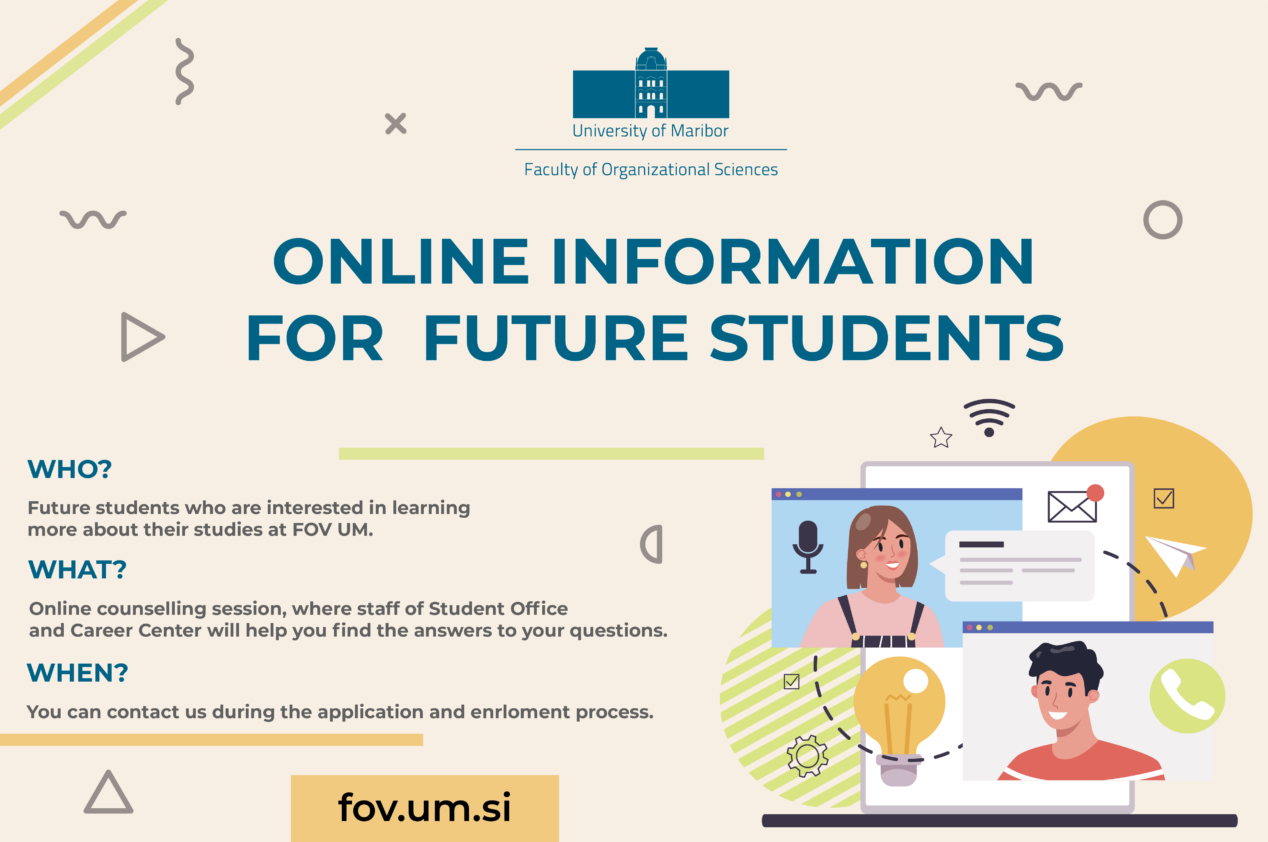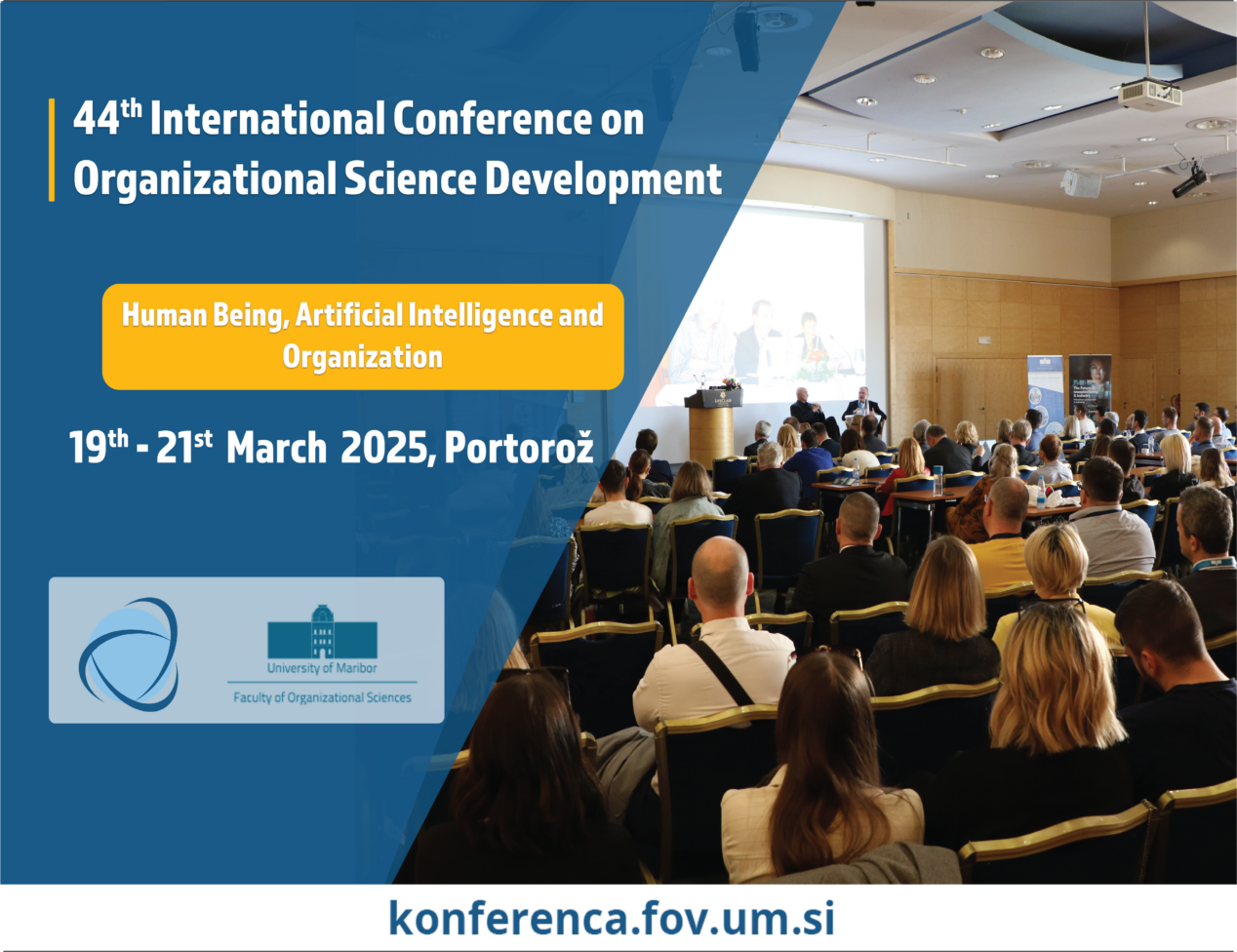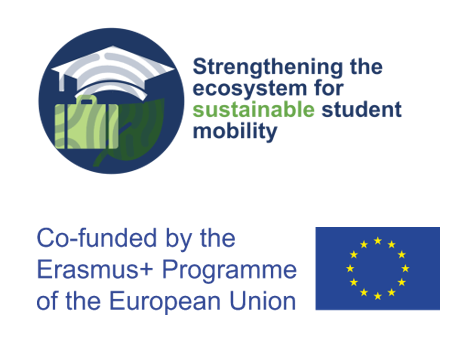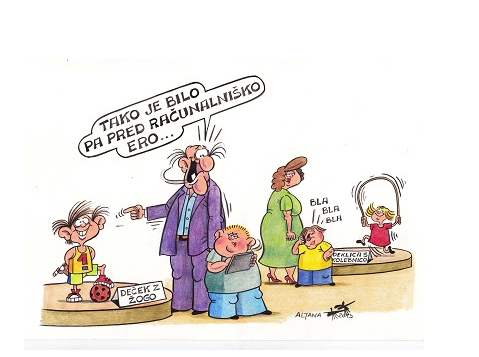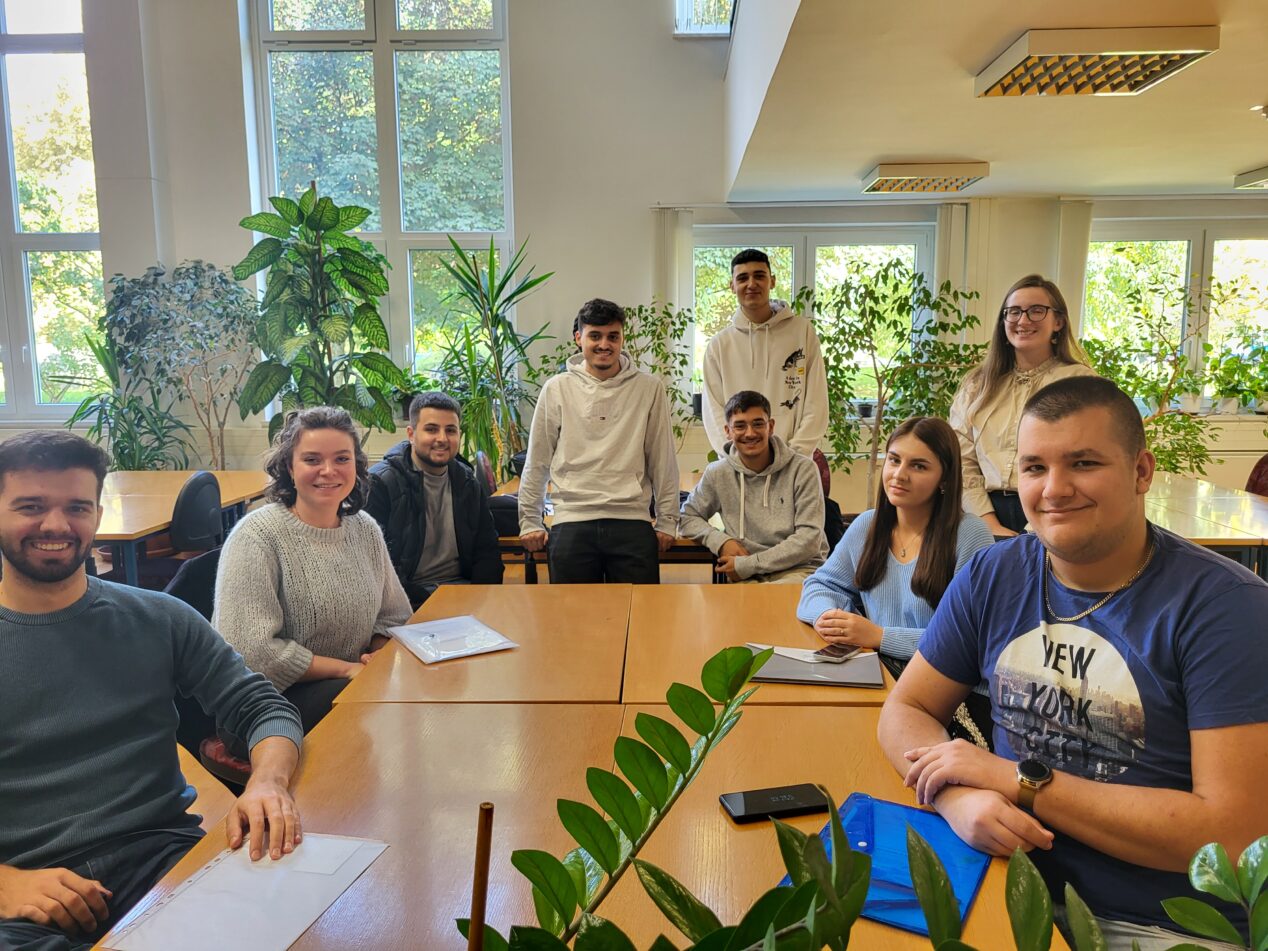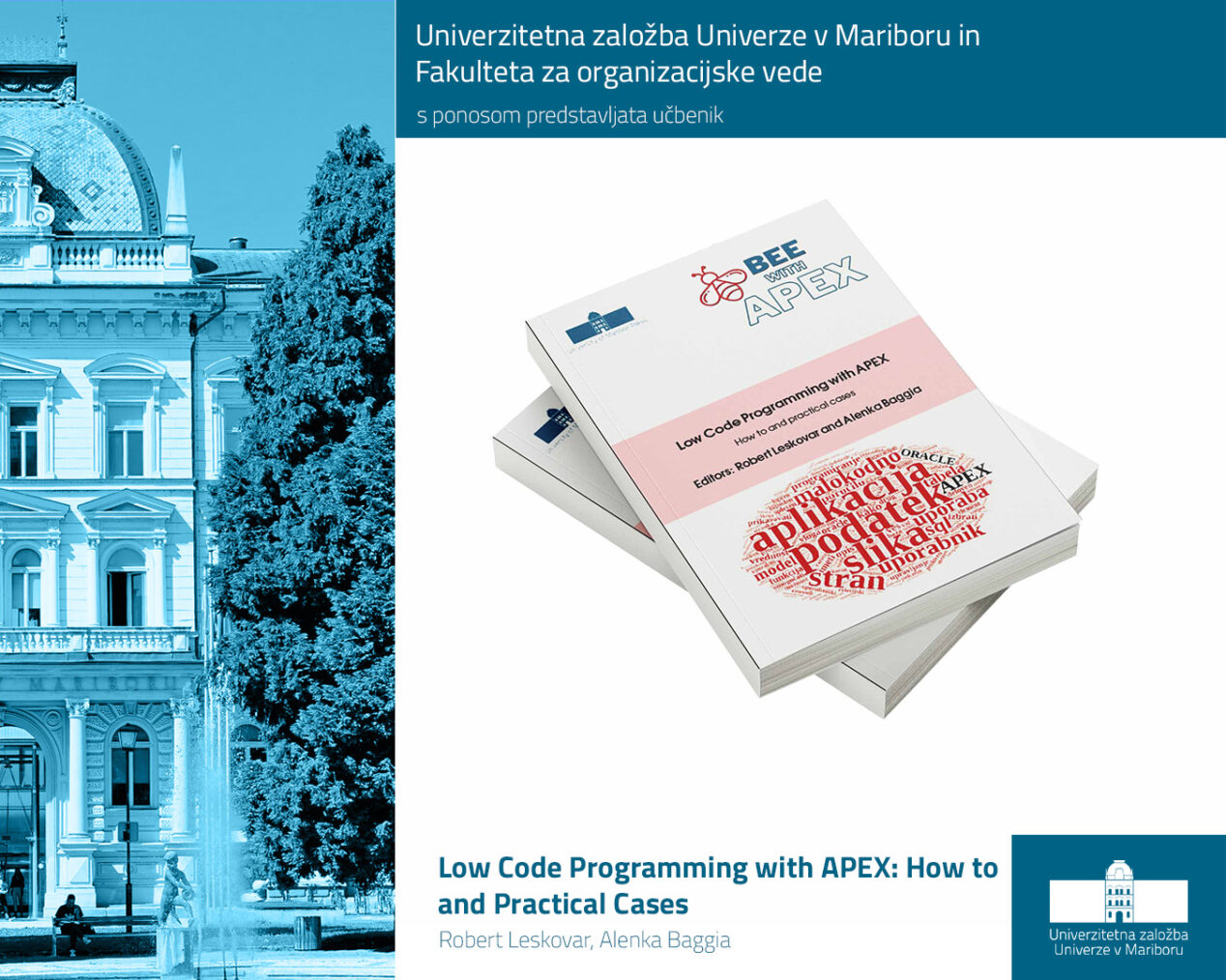On Friday, 14 February 2025 and Saturday, 15 February 2025, the Faculty of Organizational Sciences University of Maribor held Information Days for all future students. Our staff gave future students an overview of our Faculty, our study programmes and our work in the laboratories.
Future students who would like to find out more about their studies at FOV UM can also register for an “online” counselling session, where the staff of the Student Office and the Career Centre will help you find answers to your questions.
